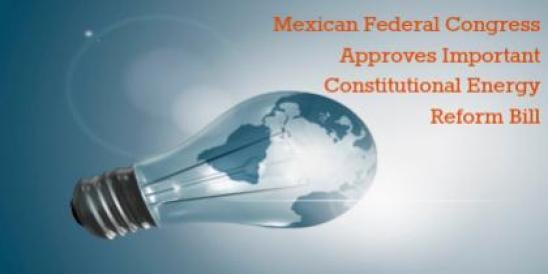As we previously reported, on August 12, 2013, Mexican President Enrique Peña Nieto submitted a highly anticipated constitutional reform proposal to the Mexican Congress for purposes of restructuring the Mexican energy sector, including oil, gas, petrochemical, and power, by allowing greater private participation in the Mexican energy market (the Bill).
Following this proposal by President Peña Nieto, the Mexican Senate approved the Bill on December 11, 2011 and the Mexican House of Representatives approved the Bill on December 12, 2011, with additional revisions that extend private participation in the Mexican energy market beyond that contemplated in the original Bill. The Bill must also be ratified by a majority of Mexico’s 31 state legislatures, where ratification is expected to happen soon.
Implementation of the Bill will come through secondary legislation that must be approved by the Mexican Congress within 120 calendar days following final ratification of the Bill. This secondary legislation will detail the legal framework that will govern the contracts with, and permits granted to, private parties.
The key features of the Bill, as revised by the Senate and the House of Representatives, will allow private parties to:
-
enter into profit-sharing contracts, production-sharing contracts and services contracts pursuant to grants by the Mexican government either directly to such private parties or under a joint venture agreement with Pemex
-
obtain licenses to perform oil and natural gas exploration and production activities
-
book their reserves or economic interests on their financial statements. While this needs to be addressed in the secondary legislation, we expect that the regulations will be similar to other jurisdictions in which ownership of hydrocarbons is retained by the government and private parties have contractual rights to proceeds that allow them to book those reserves
-
obtain permits to participate in the midstream and downstream markets, including petrochemicals, refining, transportation, storage, and distribution
Regarding the electric power sector, the government will retain control of the transmission and distribution of electricity, but private parties will also be allowed to participate in contracts to assist the national electricity utility in performing these functions. Reference to the generation of electric power is removed from the Constitution which appears to open the door for significantly greater participation by the private sector in this area. In each of these cases, much will depend on secondary legislation to be passed by the Congress to determine the ultimate degree to which private parties may participate in the electric power sector.



 i
i

